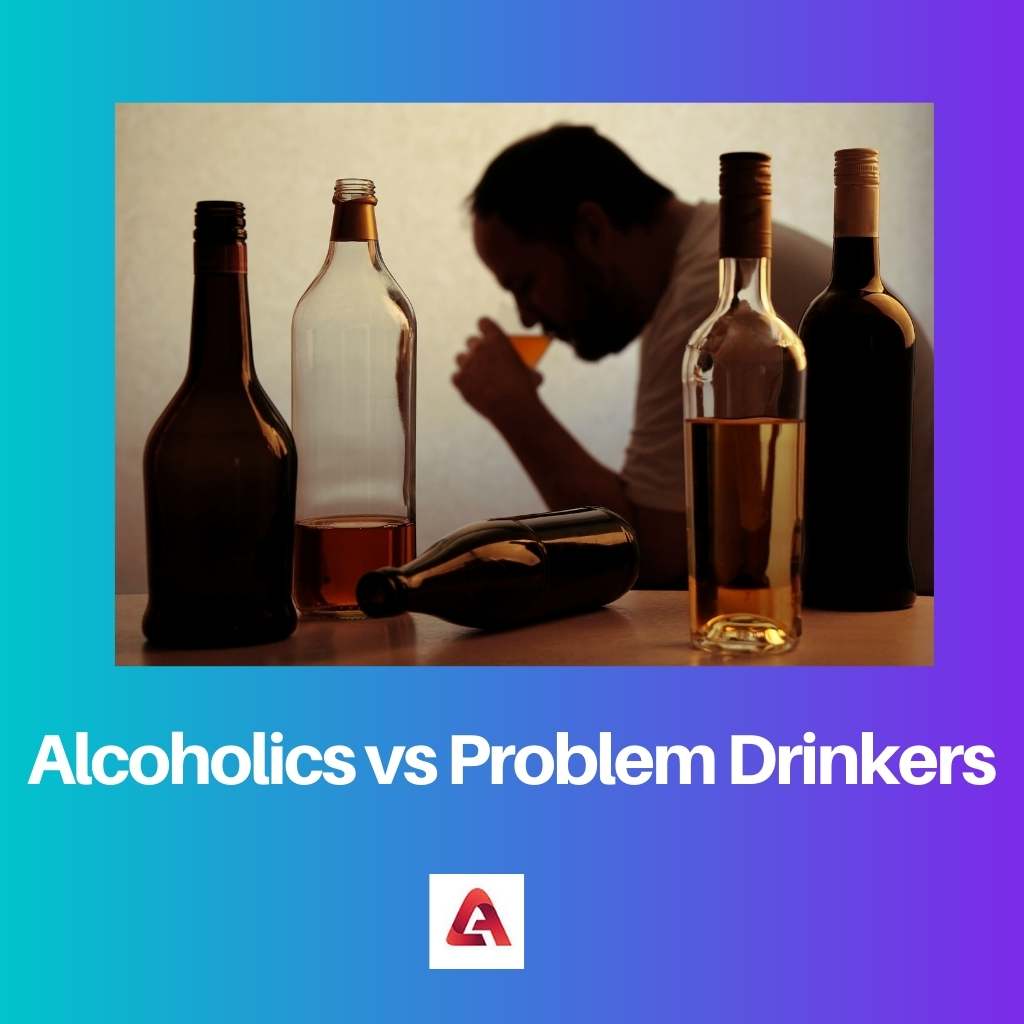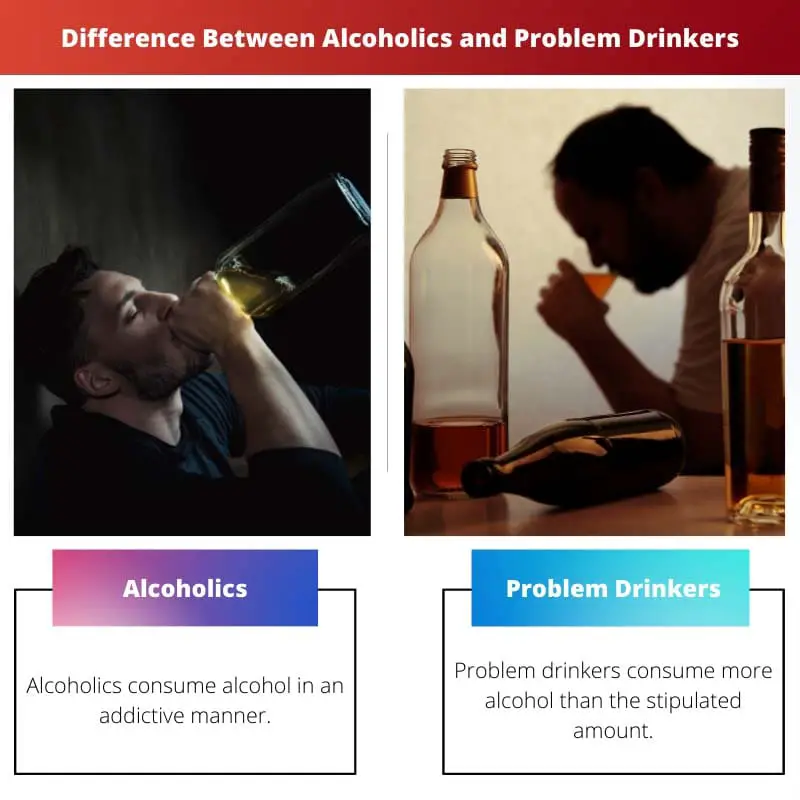Consuming alcohol on special occasions and celebrations is crucial in some cultures. Overconsumption of alcohol can cause ill effects. It also leads to major health defects.
Key Takeaways
- Alcoholics have a physical and psychological dependence on alcohol, experiencing withdrawal symptoms without it.
- Problem drinkers consume alcohol excessively but may not experience the same level of dependence as alcoholics.
- Both alcoholics and problem drinkers need support and treatment to address their issues with alcohol consumption.
Alcoholics vs Problem Drinkers
The difference between Alcoholics and Problem Drinkers is that problem drinkers are not physically addicted to alcohol, but alcoholics are. Problem drinkers don’t suffer when they stop drinking, but alcoholics experience many adverse symptoms of quitting alcohol. Problem drinkers can quit drinking easily, while alcoholics cannot do so without proper guidance.

Alcoholics cannot go even a day without drinking. Alcoholics are one of the reasons for the crimes happening in society. They need medical care to recover.
Problem drinkers may experience failing to attend classes or jobs and other personal life issues due to drinking. Unlike Alcoholics, they can stop drinking for some time or permanently without severe effects.
Comparison Table
| Parameters of Comparison | Alcoholics | Problem Drinkers |
|---|---|---|
| Definition | Alcoholics consume alcohol in an addictive manner | Problem drinkers consume more alcohol than the stipulated amount |
| Addiction | They cannot go a day without drinking | They don’t crave alcohol too much |
| Withdrawal | They can’t give up drinking easily. They need proper medical and moral support | They can quit drinking without any severe effects |
| Health issues | Liver cirrhosis, pancreatitis, cancer, ulcers, etc. | Binge drinking, nausea, headache, anxiety, and stress |
| Psychological issues | Cognitive function disability, depression, abusive behavior, and low self-esteem | Hurtful behavior towards loved ones, blacking out, etc. |
What is Alcoholics?
A person who is fully dependent on Alcohol is called an Alcoholic. But this term was used as a label and had a bad effect on them. So, now Doctors replaced the term alcoholic with Alcohol use disorder.
They start drinking on occasion and gradually increase the amount of alcohol they consume without their knowledge. They keep on drinking and think about alcohol most often.
They start to drink alone, and they cannot decrease the amount of alcohol they drink, they pass out and don’t remember anything, they get tensed if anyone comments on their habit, they lose interest in normal activities, and their main goal becomes drinking and craving for alcohol.
People who drink at an early age may also develop an addiction. People with stress, bipolar disorder, depression and other personal issues are also more prone to addiction.

What are Problem Drinkers?
Problem drinkers are people who consume more alcohol but do not require medical attention. They are not addicted to drinking but drink more than social drinkers.
Problem drinkers experience nausea and headache after drinking too much. Problem drinkers may not consume alcohol every day, but when they do, they drink excessively.
Problem drinkers can go back to normal if they decide. Once they stop drinking, they can easily quit this habit since they don’t have symptoms like shivering, weakness, and cravings.
Some problem drinkers try to quit their habit and decrease the amount of alcohol they consume and the number of days they drink in a week. They can successfully decrease or completely quit alcohol.

Main Differences Between Alcoholics and Problem Drinkers
- Alcoholics cannot quit drinking without moral, spiritual, or medical help, whereas problem drinkers can stop drinking on their own
- Alcoholics get symptoms like shaking, loss of appetite, anxiety, insomnia and increased heart rate when they stop drinking a while, and problem drinkers don’t have any severe effects on quitting alcohol.

- https://psycnet.apa.org/record/1993-18021-001
- https://www.ojp.gov/ncjrs/virtual-library/abstracts/problem-drinkers